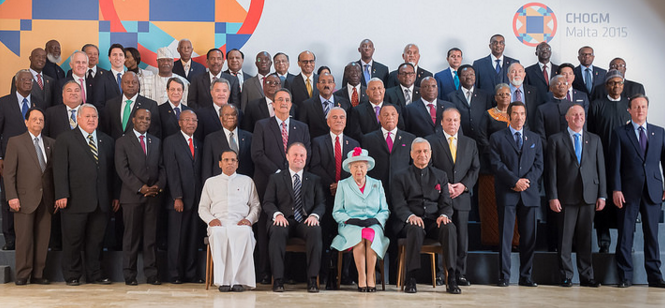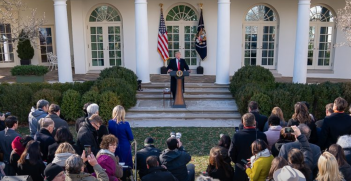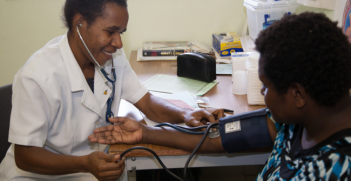CHOGM: Adding Value on Polio

Last month, Prime Minister Malcolm Turnbull joined more than 30 world leaders and thousands of business, media and civil society representatives in Malta for the 24th Commonwealth Heads of Government Meeting (CHOGM). The eradication of Polio was high on the agenda, demonstrating that the Commonwealth still has much to give the international community.
A network of mostly former British colonies and territories, the Commonwealth has come under fire in recent years for its supposed lack of relevancy, usefulness and practical impact in the 21st Century. Australian diplomats and commentators in particular, including former foreign ministers, have been amongst the critics, arguably with good reason.
There was a time when CHOGM was the only regular leaders meeting that Australian prime ministers were invited to. Not so anymore. Today, Australia’s prime ministers get invited to a plethora of global gatherings from APEC to the G20, prompting questions around the ongoing value-add of the Commonwealth and the extent to which Australia should continue to contribute funding let alone attend CHOGM.
In the face of such questions however, CHOGM 2015 demonstrated the ongoing usefulness of the Commonwealth at least in so far as it quite uniquely continues to bring together leaders from a diverse range of nations. I witnessed firsthand the value of this convening power on an issue I have long advocated for through my work with the Global Poverty Project: the global eradication of the debilitating disease of polio, cases of which have been reduced by 99 percent in the last 30 years.
Four years ago, then Prime Minister Julia Gillard brought world leaders together in Perth for CHOGM. In the lead up, Gillard convinced Commonwealth member states to recommit to eradicating polio by the end of the decade. Paying tribute to Australian Rotarian Clem Renouf, who helped found global polio eradication efforts, Australian officials lobbied intensively for new commitments from other countries.
Hard work paid off and pledges to the tune of $118 million were made at the Summit, marking in the words of the World Health Organisation a major “turning point” in the fight against the disease. Since then the number of countries where polio is endemic has been reduced from four to two (Afghanistan and Pakistan) and the world is now closer than it has ever been to eliminating the disease.
At this year’s CHOGM, in living up to its theme “The Commonwealth: Adding Global Value”, Malta’s young and dynamic Prime Minister Joseph Muscat put polio eradication once again on the gathering’s agenda. Noting the progress that has been made since 2011, Muscat pledged back in September – in front of 60,000 people at New York’s Global Citizen Festival – to seek a renewal of global support to make polio just the second human disease in history to be eradicated.
Muscat did not disappoint. Despite resistance from some quarters, he succeeded in securing a new commitment from Commonwealth leaders to accelerate action and renew financial support to eradicate polio once and for all. Such a commitment, affirmed in a condensed Leaders’ Statement of just 3 pages and announced at a press conference featuring Muscat and several other leaders including Malcolm Turnbull, could not have come at a more critical time for the global eradication program.
Based on the current epidemiology of the last two endemic countries, achieving eradication by 2019 will require an additional US$1.5 billion. The renewed commitment at CHOGM 2015 represents a key step towards securing these funds, enabling the program to react to new challenges with equal speed and ensuring the polio infrastructure benefits other health programs in the long-term.
CHOGM 2015 also showcased full commitment for the eradication program at the highest levels of political leadership in Pakistan and Nigeria, the latter of which was only recently removed from the WHO’s list of polio endemic countries. The ongoing support of both governments will be critical to success, and the Commonwealth has played a useful and constructive role in nurturing this.
Commonwealth naysayers, while acknowledging the significance of what CHOGM delivered for polio eradication, will no doubt refuse to accept this as an example of the Commonwealth’s unique role, arguing instead that this could have been achieved through other global fora. However where else this could have been done is difficult to discern.
Despite the number of contemporary global gatherings that occupy much of our leaders’ time, very few bring together at least a critical mass of key countries – donor and affected alike – involved in polio eradication in the way CHOGM does. Perhaps the only other forum is the UN General Assembly Leaders’ Week that takes place in New York every September, but the overcrowded nature of the week makes it less than ideal for galvanising attention for an important but arguably niche issue like polio. This was especially true this year with the launch of the new Global Goals for Sustainable Development quite rightly dominating the UN agenda.
The reality is that, as was the case in 2011, CHOGM was really the only forum this year that could have ensured polio received the attention it deserves, in turn demonstrating the ongoing practical utility of the Commonwealth. It was perhaps with this in mind that newly elected Secretary-General Designate of the Commonwealth, Baroness Patricia Scotland, described polio eradication as, ‘an exemplary example of what the Commonwealth can do’.
Far from ‘being the last gasp for the Commonwealth,’ CHOGM 2015, if it achieved nothing else, marked the moment when the world came together to make its final stand against a horrific disease. Yes, the Commonwealth has its problems, including a protocol-laden and overly bureaucratic secretariat, but playing a part in potentially one of the greatest public health achievements of the century suggests that perhaps it should not be given up on just yet.
Michael Sheldrick is Director of Global Policy and Advocacy with the Global Poverty Project and was an inaugural recipient of AIIA for WA’s Bursary for Studies in Asia. He was recently in Malta for CHOGM 2015. This article is published under a Creative Commons Licence. It may be republished with attribution.




